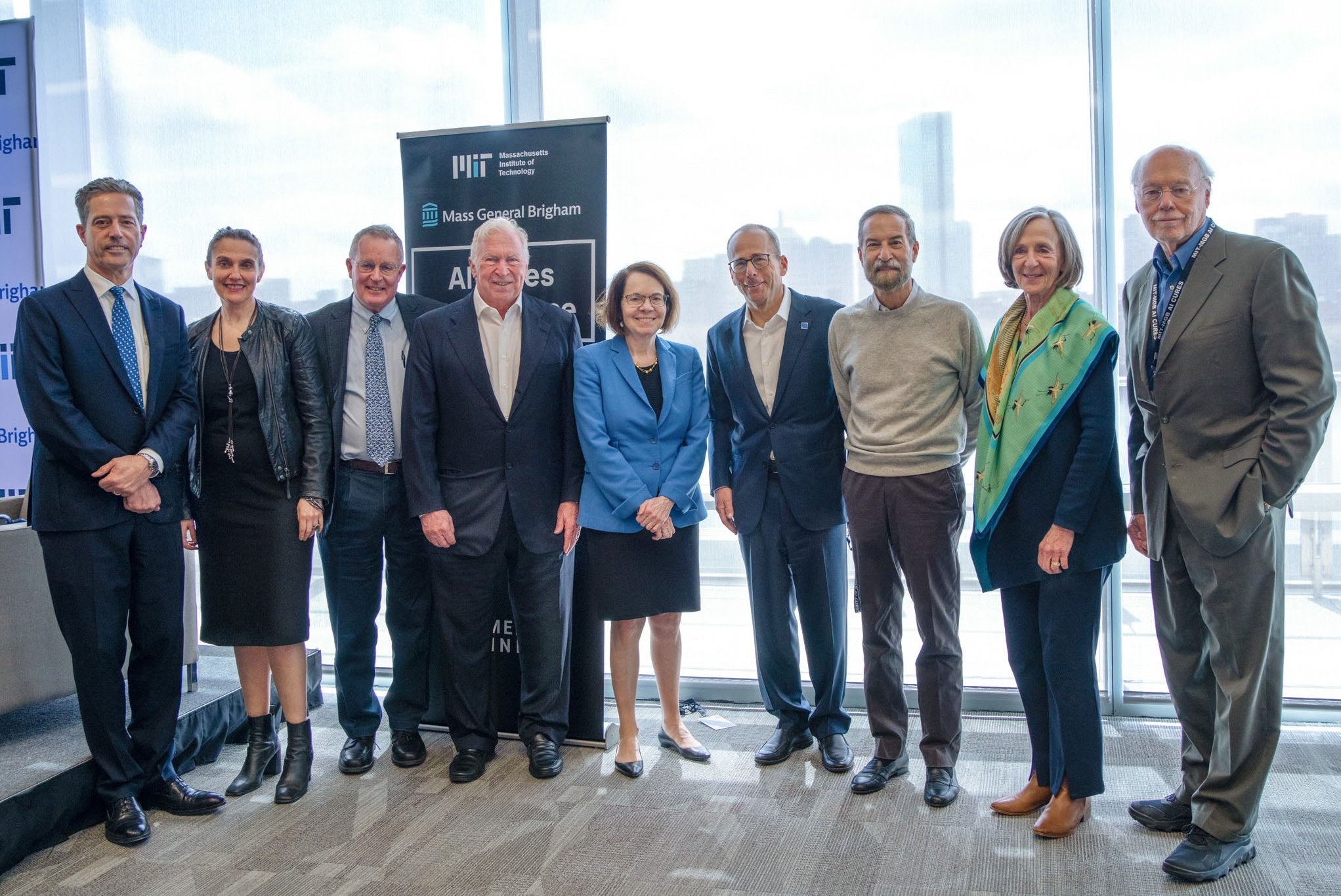
The development of generative expert system designs like ChatGPT has actually triggered restored require AI in healthcare, and its assistance base just seems expanding.
The 2nd yearly MIT-MGB AI Cures Conference, hosted on April 24 by the Abdul Latif Jameel Center for Artificial Intelligence in Health (Jameel Center), saw its presence almost double this year, with over 500 participants from a selection of backgrounds in computer technology, medication, pharmaceuticals, and policy.
In contrast to the overcast Boston weather condition that early morning, a lot of the speakers took a positive view of AI in health and repeated 2 essential concepts throughout the day: that AI has the prospective to develop a more fair health-care system, and AI will not be changing clinicians anytime quickly– however clinicians who understand how to utilize AI will ultimately change clinicians who do not include AI into their everyday practice.
” Partnerships with our partners in federal government, particularly cooperations at the crossway of policy and development, are crucial to our work,” MIT Provost Cynthia Barnhart mentioned in her opening remarks to the audience. “All of the pioneering activity you’ll become aware of today leaves me extremely confident for the future of human health.”
Massachusetts General Brigham’s (MGB) president and CEO Anne Klibanski’s remarks showed a comparable optimism: “We have visionaries here in AI, we have visionaries here in healthcare. If this group can’t come together in a significant method to effect healthcare, we need to ask ourselves why we’re here … this is a time when we need to reassess healthcare.” Klibanski called attention to the work of Jameel Center AI professors lead, AI Cures co-chair, and MIT Teacher Regina Barzilay and MGB Center for Development in Early Cancer Detection Director Lecia Sequist, whose research study in lung cancer danger evaluation is an example of how the continued cooperation in between MIT and MGB might yield worthwhile outcomes for the future of AI in medication.
” Is AI going to be the important things that treatments whatever with our ailing healthcare system?” asked recently inaugurated Massachusetts Secretary of Health and Human Being Providers Kate Walsh. “I do not believe so, however I believe it’s an excellent location to begin.” Walsh highlighted the pandemic as a wake-up call for the healthcare system and concentrated on AI’s prospective to develop more fair care, especially for those with specials needs, in addition to enhance a currently strained labor force. “We definitely need to do much better … AI can look throughout populations and establish insights into where the healthcare system is failing us and rearrange the healthcare system so it can do more.”
Barzilay called out the significant lack of AI in healthcare today with a referral to the Not A Surprises Act carried out in 2015, which needs insurance provider to be transparent about billing codes. “The FDA has actually authorized over 500 AI tools in the last couple of years and from the 500 designs, just 10 have actually associated billing codes that are in fact utilized,” she stated. “What this reveals is that AI’s result on clients is truly minimal, and my hope is this conference unites individuals who establish AI, clinicians who are the ones bringing development to clients, regulators, and individuals from biotech who are translation these developments into items. With this online forum we have an opportunity to alter that.”
In spite of the interest, speakers did not sugarcoat the prospective dangers, nor did they minimize significance of security in the advancement and application of scientific AI tools.
” You have actually got those who believe that AI is going to resolve all the world’s issues in the health-care area, change the world’s doctors, and reinvent healthcare. And after that you have the opposite of the spectrum that states how bad AI is for our economy and how it’s going to take control of the world, establishing an intelligence of its own,” Jameel Center primary private investigator, AI Cures speaker, and MIT Teacher Collin Stultz stated. “None of these principles are brand-new, however like the majority of things in life, the reality is someplace in the middle.”
” There are constantly prospective unintentional repercussions,” CEO of Cambridge Health Alliance and the Cambridge Commissioner of Public Health Assaad Sayah explained throughout the conference’s regulative panel. “At the end of the day, it’s difficult to anticipate what are the prospective repercussions and have the proper safeguards … lots of things are truly wrongly inequitable for particular sub-populations … there’s a lot information that’s been difficult to include. I would urge all of you to keep this in mind.”